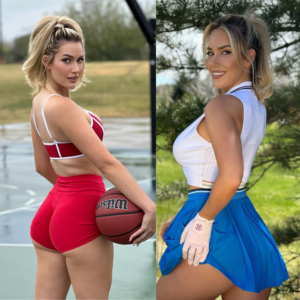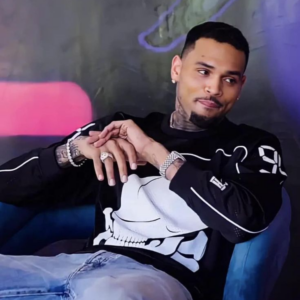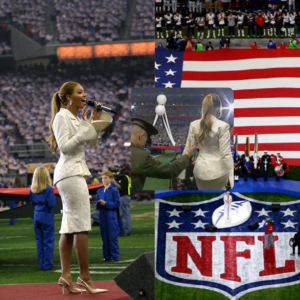The R&B singer, 41, knows artists can only do so much during times of strife, “but we can make people feel better.”
On May 24, a Florida law requiring felons to pay fines before they could register to vote was deemed unconstitutional. The ruling was a major breakthrough for voting rights activists — a group that includes singer John Legend, who has long championed criminal justice reform through his Free America organization. “It’s really meaningful for the hundreds of thousands of people that will get to vote and not have to pay a poll tax,” he told EW following the court’s decision. “You’ve got to celebrate the wins because they don’t come all the time.”
A day after the ruling, George Floyd was killed in Minneapolis. His death would spark an ongoing global protest movement against systemic racism, one that, three weeks later, shows no signs of abating. In the midst of it all comes Legend’s new album, Bigger Love, a 16-track collection of sultry ballads and upbeat romantic numbers. In a recent Twitter thread, the singer noted the sharp disconnect between the joyful music he’s set to unveil and the pain currently being felt in minority communities across America. “Some of us may wonder if it’s ok to laugh or dance or be romantic,” he wrote — but he wanted to forge ahead: “It’s important for us to continue to show the world the fullness of what it is to be black & human. Through our art, we are able to do that.”
In late May, before thousands across America took to the streets to demand change, the EGOT winner revealed the story behind his new record and the importance of releasing music at trying moments in history.
“We can only do so much, but we can make people feel better,” Legend says. “And I feel like this album can definitely do that.”
JOHN LEGEND: I’m always very excited to finish an album and to get it out to the world, because it’s such an all-encompassing long process — so many moving parts, so many iterations, so many mixes and arrangement changes. And by the time you’re done, you’re so proud of this group effort. I feel that way now. I’ve felt that way every time I’ve put an album out. Obviously the circumstances under which we’re releasing are quite different, though. It changes some of the things that we would normally do. For instance, I would probably be on a plane a lot these days if it were a normal album release. I’m still appearing on talk shows, but I’m doing it from my living room, which is a little weird. It’s also just interesting tonally trying to think of how people are receiving their music. I wrote this all before the pandemic.
You’ve called Bigger Love your sexiest album. Was that the plan going in?
I never have a plan when I’m going into the songwriting process. I have, “Oh, here’s some people I’d like to work with this time.” Or “I’ve been listening to this particular album, let me reach out to this producer because I like what he did.” You really never know what you’re going to come up with when you go into a room with another writer. Only time I do that is when it’s for a film. But when I’m writing for an album, I truly go into it open-minded. I’m figuring out who I am and where I am in this moment in my life.
Instead of a typical album drop, your wife, Chrissy Teigen, has been leaking snippets of the album over a lyric you wrote. Was that officially part of the new rollout plan?
You kick the album off with one of the most seductive tracks on the record, “Ooh La.”
That’s one of my favorites.
It includes a sample of “I Only Have Eyes for You,” by the Flamingos. Meanwhile, “Actions” samples David Axelrod’s “The Edge.” What struck you about both of those songs for you to flip them in a new way?
We didn’t actually sample on the first song. We just did a part that’s clearly reminiscent, but it’s all original playing — though I’m sure there will be conversations with the business affairs at Sony to make sure we’re not copyright infringing.
I did both of those songs with [producer] Oak Felder, and those were his ideas to flip those two different genres of music and make a hip-hop soul kind of fusion. When he presented the idea of “Ooh La,” he said, “We should do something where doo-wop meets trap.” That’s a good logline, so we ran with that idea. I wanted the lyric to be fun and modern, so that post-chorus where I say “Spin around, let it bounce” is obviously more trap. And then the [sings] “Don’t make me wait, I’ve been thinking about it all day” is more doo-woppy. I really wanted to explicitly bridge those two different styles and eras.
“Actions” looks back on your days as a bachelor and the inherent contradiction you felt writing love songs despite not being in a committed relationship. Now that you’re married, how do you view past work like “Stay With You” and “PDA”?
I think of them as songs that I still love. I’m a bit nostalgic about those [early] albums too. There’s nothing like that feeling of being at the beginning of your career and trying to establish yourself and the hunger and fire you have inside you; you never replicate it later, even if you make better songs. There’s something about that time that is very special, so I’ll always be fond of those moments. And I still really love performing those songs. Particularly “Ordinary People,” “Stay With You,” “So High,” and the songs from the second album, even ones that weren’t hits, like “Where Did My Baby Go?” and “Maxine.”
Before you used Axelrod’s “The Edge,” it was famously sampled on Dr. Dre and Snoop Dogg’s “The Next Episode.” How did you and Oak come up with the melody for it?
Well, he played the sample and I was like, “Oh, we got to do something with this.” The first line I wrote was the “la, da, da, da,” because I thought it would be cool to be reminiscent of Snoop’s line and their version of sampling that song. And then I love the idea of actions speaking louder than love songs because when I write songs, I start with a scat; like, over a beat I’ll write the melody before I write the lyric. So the “la, da, da, da” is like me modeling how I write songs..
You’ve been writing love songs throughout your career, and you and Chrissy share a lot of your relationship online. Do you ever feel like you’re not able to hold certain things back that you would like to keep private?
I think everything we share is our choice. We definitely hold plenty back, but I don’t think we’re forced into sharing anything that we don’t want to share. And Chrissy is very savvy on social media — more savvy than I am — and I feel like she’s good at figuring out what she wants to share and what she doesn’t.
You have Raphael Saadiq executive-producing this record. You go back a ways, having worked on your second album together. Do you recall what your first meetup was like?
The first time I met him, I went in and played “Ordinary People.” And he was just amazed by it. He still tells me that story. But I’ve been in awe of his career for a long, long time. I’m like a true Tony! Toni! Toné! and Lucy Pearl fan — everything he did, I followed and bought the albums and really listened to them. Even all the tracks he produced for other people. And so meeting him early in my career was a big deal for me. We just clicked right away. The first couple of songs we wrote, one of them was “Show Me,” which was on my second album, Once Again, and remains one of my favorite songs I’ve written. And then of course worked together on the Christmas album. We just have good chemistry. Raphael has been such a joy to work with.
You had to finish the string arrangements for this album remotely…
We had to kind of overdub and do it from a distance.
How did that go? Did you watch them playing virtually?
Oh, no. I never watch. We work with the arranger and we approve the arrangement, and then the arranger kind of quarterbacks the actual execution. He’s done that really well for us in the past. I literally have not gone to the studio since the quarantine started.
[John looks up and starts talking to someone off camera]
Chrissy is saying hi.
[Chrissy walks into the frame, bleary-eyed and wearing a robe]
Hi, Chrissy.
CHRISSY TEIGEN: Hi. Oh, I’m sorry, I just woke up. He’s being honest, we have not left. Well, I haven’t left for like two years.
[Chrissy kisses John and walks away]
LEGEND: So the week before [quarantine], I did all the things I needed to get done personally for the album and never went back to the studio. Everything else we did remotely.
This is your first full album of original material not to bear Kanye West’s GOOD record label imprint. Does it feel weird not being with the label anymore?
No. It feels natural. It feels like this is part of me. It’s just part of my development. Us working together on those first five albums was critical to my whole career launching and I have no regrets about it, but it was just time to move on. Kanye is doing the gospel thing and he’s a very successful fashion entrepreneur. I just felt like there was no need for us to continue that particular version of our relationship, but I’m so grateful for the foundation we built. I wouldn’t be here [talking] about my sixth solo studio album without that foundation.
Your album Wake Up, with the Roots, was partially inspired by your campaigning for Barack Obama in 2008, which feels like a lifetime ago in terms of how we consume news and politics today. Does it feel that way to you, or do memories of that album still feel within reach?
Well, it feels long ago because it really was. It was literally a decade ago. But I revisited it recently because of Bill Withers passing away and going back to the song [of his we covered], “I Can’t Write Left- Handed.” It just made me want to listen to the whole thing, and it holds up. It feels really urgent and really good right now.
:max_bytes(150000):strip_icc():format(webp)/GettyImages-1193792396-c1785b3e37e94611ae199c87e1a7a334.jpg)
Legend, performing in 2019. TRISTAN FEWINGS/GETTY IMAGES
Bill enjoyed that version you guys did, right?
He wrote me a really long email the first time I ever communicated with him, telling me how much he loved it. Once I became friendly with him, I began to understand that he writes a lot of long emails. He’s a writer. He writes interesting stories, cool asides, humor, all those things that you would want from a good writer. He was that. He was a really interesting man.
What was it like meeting him the first time?
It was so cool. I was excited. I became friendly with him over email and then started inviting him to our shows. The first one he came to was me and the Roots. Questlove was just in awe.
There’s always been an internal struggle between commerce and standing up for political points of view. Do you feel that tension yourself when you’re seeing protests against Amazon’s working conditions while you’re performing for Amazon Music? Is there ever a breaking point where you draw the the line?
Yeah, there is. I don’t know if I specifically thought about it in that case. Sometimes you don’t connect all of the things because these companies are so big that it’s like, they’re doing this one thing over here and then they’re doing this completely different thing over here. You could be more conscientious and really know all the details about all these different protests and say, “Well, I don’t want to work with a corporate partner that does this or that.” It’s something everyone has to think about, but it’s hard to make hard and fast rules about it.
I remember when they were releasing the names of some of the donors that donated to Trump and one of the guys [Stephen Ross] owned a real estate company that also owns Soul Cycle. And so people were trying to decide whether or not they can go to Soul Cycle. I get it. It’s a legitimate thing to think about, but it’s hard to draw these lines because everything’s so interconnected. That same guy also was a business partner of [chef and restaurateur] David Chang, who we love, and Chrissy’s doing TV shows with him. It’s hard to keep track of all these interconnected businesses and empires and then deciding what you feel like is worthy of a boycott versus not. I think every artist has to think of it, but I think every consumer has to deal with it too.
The Grammys seem to face boycotts every year now. How do you see the the Recording Academy moving forward after the ousting of former President Deborah Dugan?
Well, I will speak with some bias because I’m actually a newly elected trustee for the L.A. chapter. I want the Grammys to work for the artist community. And I want the credibility to be strong in the larger audience so they know that the Grammy [Awards have] had a reputation for a very long time of being the pinnacle of excellence when it comes to music. I think it still means what it’s supposed to mean, but there have definitely been some chinks in the armor recently. I think we, as the Recording Academy, need to make sure that we continue to uphold the highest standards for the music, be relevant to what’s happening in music right now, and make people feel like the decisions are being made in a way that’s really pure.
What were your thoughts on what Diddy said in February, that the Grammys have never respected black artists?
Well, the bottom line is, it’s almost impossible for a black artist to win Album of the Year. It’s like, how many years do we have to see Beyoncé getting snubbed? Kanye has never won Album of the Year. It’s kind of insane, actually. But it’s just like any other voting process. You have the voters you have. And the one thing that the Grammys can do to change that is get an influx of a more diverse and younger voting base and phase certain voters out that aren’t making music still. So that they’re not taking up so much of the bulk of the voting bloc. We’ve got to do something because that’s a terrible record and Diddy is right to complain about it.
News
Paige Spiranac, a former professional golfer turned influencer, has found immense success in her career as a social media influencer, model, and media personality. With 3.9 million Instagram followers and 1.5 million on TikTok, she has become a prominent figure in the online world.
Paige Spiranac flattered to inspire others, including copycats, in Social Media success In a recent interview with The U.S. Sun at The SI Invitational, Spiranac expressed her…
Golf influencer Paige Spiranac knows exactly what some people think of her, and she had the perfect response ready for those critics.
Paige Spiranac posts brilliant response to sexist critics who think she does not know how to golf She played dumb in order to prove her point The Instagram…
PAIGE SPIRANAC delighted fans with her latest social media post.
The golf influencer loves to upload snaps of herself from various courses around the world. 28 Paige Spiranac posed in a figure-hugging black dressCredit: https://twitter.com/PaigeSpiranac 28 Fans love…
Paige Spiranac fans left distracted as she teases curves in busty outfit
Instagram influencer and golfer Paige Spiranac gave her fans an eyeful in her latest post. Paige Spiranac shares golf tutorial Fans of golf star and social media…
Crowned The King Of R&B, Chris Brown Has Amassed A 2024 Net Worth Of $50 Million
Chris Brown is an iconic and well-known singer, songwriter, actor and world-class dancer. Working since he was 16, Brown has continued to thrive within the entertainment industry and…
NFL fired Beyoncé after just 2 minutes on stage for singing ‘Alternative National Anthem’ at NFL.
In a world where celebrities often tread lightly around political and social issues, global superstar Beyoncé has never been one to shy away from making a statement….
End of content
No more pages to load











